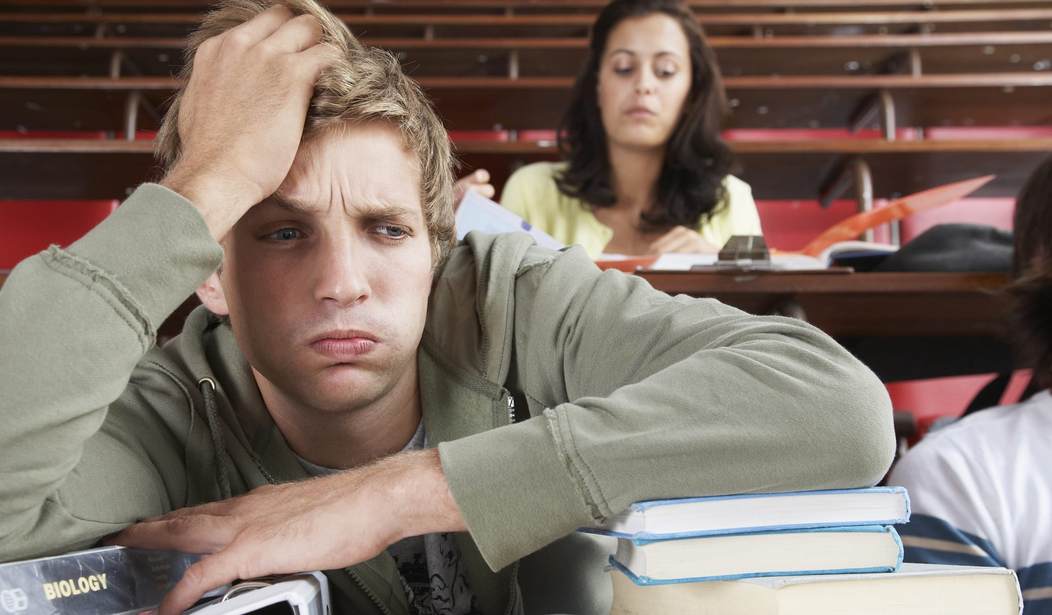With National Decision Day (May 1) fast approaching, guidance counselors throughout the country are ramping up their pressure on high school kids to choose the right college. It turns out that there may be more at stake than even guidance counselors know. A new study is claiming that choosing the wrong college can lead to depression.
The study, conducted by Noli Brazil and Matthew Andersson, uncovered that “depressive symptoms increase by 27% for students experiencing lowered peer ability across their college transition, relative to no substantial change in peer ability. In addition, heightened peer ability in college links to neither diminished nor enhanced student well-being across the transition. Overall, student well-being relates more closely to collegiate than high-school peer ability.”
In non-peer reviewed journal speak, that finding can be translated that if students attend a college where the classes are less academically challenging than they’re used to and where their peers are less academically focused than their high school classmates, the risk for depression rises substantially.
The study’s authors discovered that 50 percent of high school students transition to a college that matches their rubric for “lower peer ability.” Writing about their study, the authors assert, “This finding held even after we accounted for a number of other factors, including family income, parents’ education and gender. We also took into account the high school-to-college transition itself.”
Using data from the National Longitudinal Study of Adolescent to Adult Health, the authors combed through the responses from over 1,400 students representing 100 high schools across America. Within the study, the students were asked questions designed to measure their mental health as they transitioned from high school to adulthood. Brazil and Andersson then,
Measured school academic ability using average scholastic and cognitive aptitude tests. We then examined the effects of going to a college with higher, lower or the same average scores relative to high school on student depression and self-esteem levels.
Prior research has examined the consequences of school academic ability on a variety of outcomes, such as academic performance and self-image. From these studies, a clear finding emerged: equally able students have a lower academic self-image in high-ability schools than in low-ability schools, a phenomenon known as the “big-fish-little-pond effect.”
But because prior research had focused on specific schools rather than school transitions in general, researchers may have failed to detect that movement to a lower-ability school may be harmful to a student’s mental well-being. In particular, going into a lower ability academic setting may be viewed by the student as a failure. If such a student experiences elevated depression levels, it could be the result of unmet or frustrated expectations for achieving personal success and being around peers who share similar interests, habits and goals.
Most people recognize that transitioning from high school to college can be stressful. However, I doubt many people would have guessed that attending a less academically challenging college than your high school would be one of the causes of that stress.









Join the conversation as a VIP Member